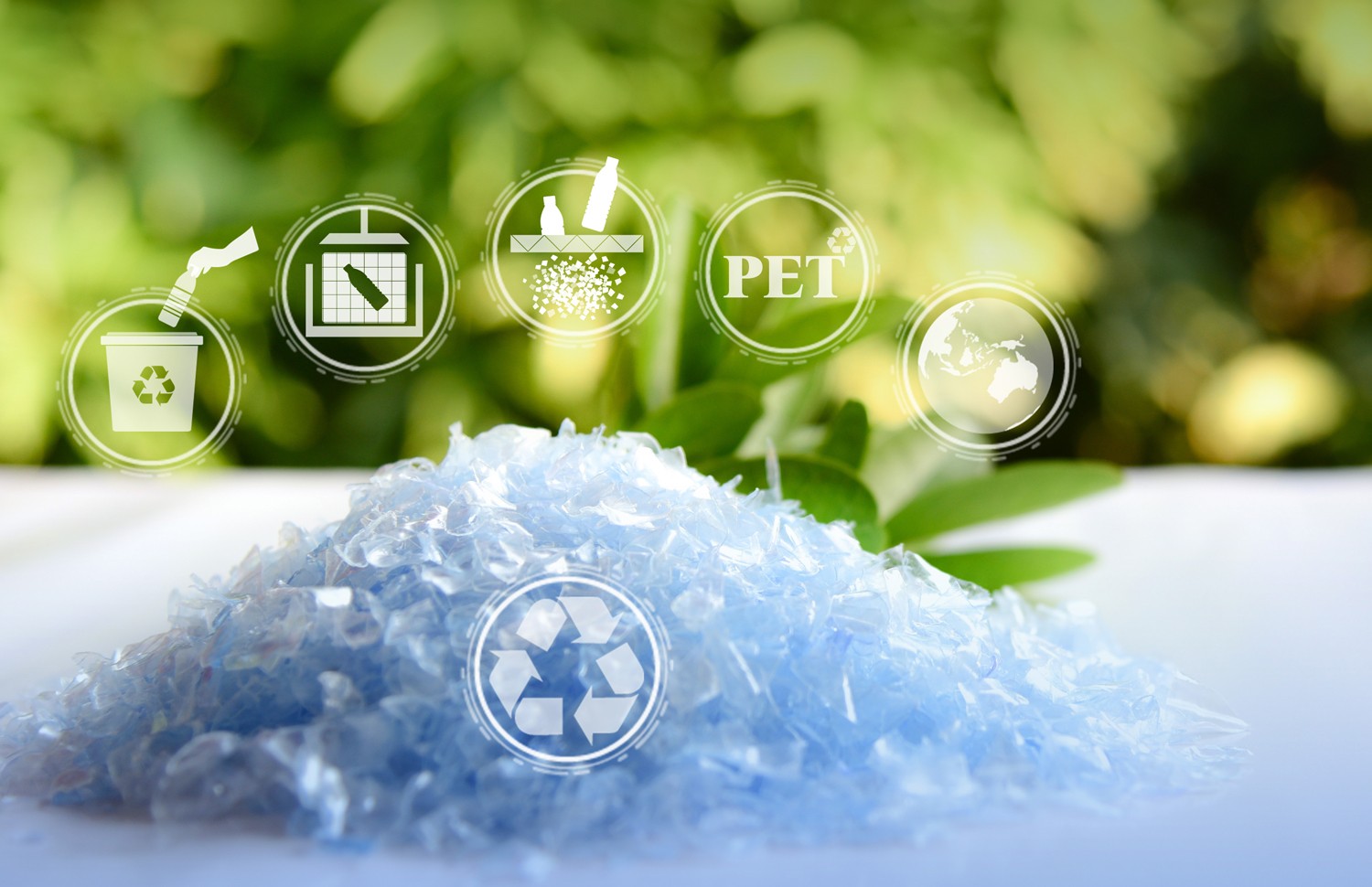Everyone could agree: plastic only has a future as a packaging material if we succeed in closing the cycles. The increasing production and use of recycled material is indispensable for this. And the European regulators also attach a central role to the use of recycled material in the new PPWR. However, things currently look quite different. One of the reasons for the low demand is the price war between recyclate and virgin material. We shed light on the situation for you, let stakeholders have their say and give you an outlook.
The situation around plastics recycling is unsatisfying. Most market participants can agree on that. However, there is disagreement when one asks for the reasons.
PET: The market has turned
The problem with R-PET is its relatively high cost. New products are simply cheaper and therefore displace recyclates at all levels, according to the bvse Plastics Recycling Association. Recyclate producers can only react to this to a limited extent, however, as they must shoulder higher process costs for energy and transport, for example.
The extent to which the situation has changed and worsened can be seen, for example, in the area of PET recycling, which was previously considered exemplary. Here it was just one year ago that PET recyclate was trading for 2,700 euros per tonne, while virgin material was available for 1,700 euros. Nevertheless, the market was practically empty and the search focused on R-PET. This situation has completely turned around – with consequences for recyclers.
Recyclers under pressure
Timothy Glaz, Head of Corporate Affairs at Werner & Mertz points out the threatening situation for recyclers. He speaks of a frightening situation and a brutal price war between virgin material and plastic recyclates, which has a negative impact on the entire recycling industry.
In June, the bvse stated at the 25th International Used Plastics Day in Dresden that the market for used plastics and PET recyclates is in a deep crisis. The low demand is leading to restrictions or even shutdowns of production, while at the same time inventories are continuously growing. Under these circumstances, the economic operation of recycling plants is impossible and endangers the entire recycling in the long run. After all, once plants have been shut down, they cannot be restarted or operated within a short period of time. The first plant closures have already taken place.
Example Veolia
Veolia PET Germany GmbH, for example, has reacted to the weakness of the PET recycling market that has persisted for some time. Due to the lack of long-term security for the production site, the company is closing PET recycling in Rostock on 31 December 2023 after more than 20 years.
The question of guilt
The bvse Plastics Recycling Association sees the plastics processing industry as being primarily responsible. They rely heavily on cheap goods with a large CO2 backpack, seem to ignore climate-friendly recyclates and do not fulfil their product responsibility. Some PET processors even went so far as to rely completely on virgin material and to exclude recyclates. Accordingly, the association appeals to those involved in the plastics value chain to finally face up to their responsibility. Ignoring climate-friendly recyclates is hypocritical and short-sighted.
In addition to PET processors, product manufacturers are also likely to feel addressed. The figures of the Ellen MacArthur Foundation’s Progress Report 2022 show that companies are not fulfilling their voluntary commitment around “use of PCR” to the required extent.
Classification and outlook
As mentioned at the beginning, plastic only has a future in the packaging sector if we succeed in closing the cycles. The use of recycled materials plays a central role in this. Companies must be aware that switching from virgin materials to recycled materials is not only ecologically necessary, but also makes economic sense in the long term. Especially in view of the mandatory recyclate use quotas of the new Packaging and Packaging Waste Regulation (PPWR), sticking to the primacy of virgin material is not an option.
Even if it hurts at first: the current cost advantage must make way for a long-term commitment to the circular economy and climate protection.
In this situation, a joint mission statement by the Federal Association of the German Waste Management, Water and Environmental Service Industries (BDE), PlasticsEurope Deutschland e.V. and the German Chemical Industry Association (VCI) of 30 August 2023 entitled “Closing plastic cycles intelligently” is encouraging. The three organisations want to advance the circular economy in partnership and list a whole series of recommendations for action, the first addressee of which is politics. According to the associations, a market economy alone will not solve the problem. Supportive regulatory framework conditions are absolutely necessary.


